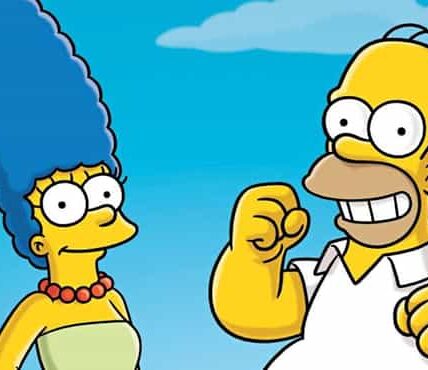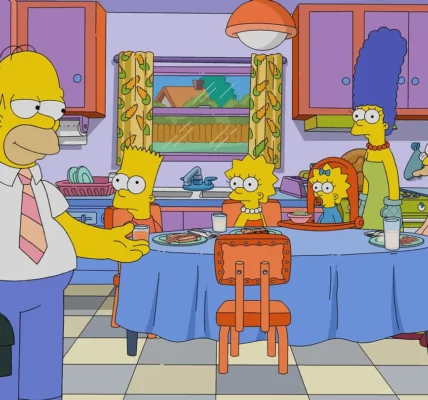Introduction
The character of Homer Simpson is an undeniable cornerstone of “The Simpsons,” the long-running animated sitcom that has captivated audiences for over three decades. Homer, the bumbling and lovable patriarch of the Simpson family, has become a pop culture icon known for his endearing quirks and relatable flaws. In this article, we will delve into the depth and appeal of Homer Simpson as a character, sharing personal experiences, and exploring the reasons behind his enduring popularity.
1. Flawed Everyman: Relatability and Humor
Homer Simpson resonates with audiences as a flawed everyman, embodying the universal experience of navigating the ups and downs of life. His relatability stems from his relatable flaws, such as his laziness, impulsiveness, and occasional lack of common sense. Homer’s comedic mishaps and misadventures elicit laughter and allow viewers to find humor in their own imperfections. His relatability and the comedic brilliance of his character contribute to his enduring appeal.
2. Emotional Depth: Moments of Heart and Growth
While Homer Simpson is primarily known for his comedic antics, the character also possesses surprising emotional depth. The show has explored moments of vulnerability and growth for Homer, revealing his love for his family and his capacity for change. From heartfelt moments of fatherhood to poignant reflections on the complexities of adult life, these glimpses into Homer’s emotional journey add layers of depth and allow viewers to connect with him on a deeper level.
3. Cultural Impact: Quotes and Catchphrases
Homer Simpson’s influence extends beyond the show itself, as his quotes and catchphrases have become ingrained in popular culture. Phrases like “D’oh!” and “Mmm… donuts” have become synonymous with Homer and are often used in everyday conversations. These cultural references have transcended the boundaries of the show, cementing Homer’s status as a cultural icon and further solidifying his place in the hearts of fans worldwide.
Personal Experience: Laughter and Endearment
As a devoted viewer of “The Simpsons,” Homer Simpson holds a special place in my heart. The character has brought countless moments of laughter and joy into my life. Whether it’s his hilarious catchphrases, his comical mishaps, or the tender moments of familial connection, Homer’s presence on the screen never fails to bring a smile to my face. His character has become a symbol of the enduring power of laughter and the comfort of familiarity.
Homer’s ‘Stupid’ Moments: Exploring the Endearing Absurdity of “The Simpsons”
Introduction
Homer Simpson, the lovable and sometimes dimwitted patriarch of “The Simpsons,” is known for his hilarious and endearing “stupid” moments. These comedic blunders and absurd situations have become iconic elements of the long-running animated sitcom. In this article, we will delve into Homer’s “stupid” moments, sharing personal experiences, and exploring the enduring appeal of his endearing absurdity.
1. Embracing the Absurdity: Laughter and Entertainment
Homer’s “stupid” moments are a fundamental source of laughter and entertainment in “The Simpsons.” From his infamous catchphrase “D’oh!” to his knack for getting himself into bizarre and comical situations, Homer’s hilarious blunders have become legendary. These moments of absurdity add a unique charm to the show, creating memorable scenes that continue to delight audiences after all these years.
2. Relatability and Human Fallibility: Finding Comfort in Imperfection
Homer’s “stupid” moments resonate with viewers due to their relatability and the inherent human fallibility they represent. We all make mistakes and find ourselves in silly situations from time to time, and Homer’s character captures the essence of our own imperfections. His relatability allows us to laugh at ourselves, find comfort in our shared follies, and appreciate the humor in life’s everyday absurdities.
3. Character Growth and Redemption: Learning from Mistakes
While Homer may be prone to his fair share of “stupid” moments, the character also exhibits moments of growth and redemption. Through his misadventures, he learns valuable life lessons, fosters stronger connections with his family, and demonstrates the capacity for personal growth. These arcs showcase the multifaceted nature of Homer’s character, adding depth and complexity to his endearing absurdity.
Personal Experience: Laughter and Fond Memories
As a dedicated fan of “The Simpsons,” Homer’s “stupid” moments have brought me countless moments of laughter and joy. These comical blunders have become ingrained in my memories, and they continue to bring a smile to my face whenever I revisit classic episodes. Homer’s endearing absurdity has become a source of fondness and nostalgia, reminding me of the enduring appeal of the show.
The Role of ‘Stupidity’ in Homer’s Character Development: Unveiling the Complexity of “The Simpsons” Icon
Introduction
The role of ‘stupidity’ in Homer Simpson’s character development is a fascinating aspect of the iconic animated series, “The Simpsons.” Homer’s occasional dimwittedness and comical blunders have played a significant role in shaping his character and contributing to the show’s enduring popularity. In this article, we will delve into the complexities of Homer’s ‘stupidity,’ sharing personal experiences, and exploring its impact on his character development throughout the series.
1. The Comedy of Absurdity: Entertainment and Laughter
Homer’s ‘stupidity’ is a key source of comedy in “The Simpsons.” His dimwitted moments, humorous catchphrases, and amusing misadventures provide endless entertainment for viewers. The absurdity of his actions and the resulting consequences create a comedic dynamic that has been central to the show’s success. Homer’s ‘stupidity’ serves as a vehicle for laughter, delivering lighthearted moments that have kept audiences engaged and amused for decades.
2. Reflecting Human Fallibility: Flaws and Relatability
Homer’s ‘stupidity’ reflects the fallibility and flaws inherent in human nature. His occasional lack of common sense, impulsive decisions, and comical blunders make him relatable to audiences who can identify with their own imperfect moments. The portrayal of ‘stupidity’ in Homer’s character provides a humorous and exaggerated depiction of human flaws, reminding us that we all make mistakes and experience moments of folly.
3. Moments of Growth and Redemption: Complex Character Arcs
While Homer’s ‘stupidity’ is often a source of comedic relief, it also plays a role in his character development. Throughout the series, viewers have witnessed moments of growth and redemption as Homer learns from his mistakes. His experiences, fueled by his ‘stupidity,’ have allowed for the exploration of complex character arcs, showcasing the capacity for personal growth, introspection, and familial bonds. Homer’s ‘stupidity’ adds depth and complexity to his character, transcending its comedic purpose.
Personal Experience: Laughter and Appreciation
As a dedicated fan of “The Simpsons,” I have found myself laughing along with Homer’s ‘stupidity’ countless times. These moments of comedic relief have brought joy and entertainment into my life, creating cherished memories associated with the show. However, I have also come to appreciate the layers of complexity that Homer’s ‘stupidity’ adds to his character. The balance between humor and character growth has made Homer Simpson one of the most beloved and enduring characters in television history.
The Humor of Homer’s ‘Stupidity’: Unleashing Laughter in “The Simpsons” Universe
Introduction
The humor of Homer Simpson’s ‘stupidity’ is a cornerstone of the beloved animated series, “The Simpsons.” Homer’s comical blunders, hilarious catchphrases, and endearing dimwittedness have brought laughter and joy to audiences for decades. In this article, we will explore the humor behind Homer’s ‘stupidity,’ sharing personal experiences, and uncovering the reasons why it has become a defining aspect of the show’s enduring appeal.
1. Slapstick Comedy: Physical Humor at Its Best
Homer’s ‘stupidity’ often manifests in slapstick comedy, characterized by physical humor and exaggerated actions. His clumsy and bumbling nature leads to countless comical mishaps, resulting in uproarious laughter from viewers. Whether it’s his famous falls, accidents with everyday objects, or his knack for getting himself into absurd situations, Homer’s physical comedy brings a unique and timeless form of humor to “The Simpsons.”
2. Wordplay and Catchphrases: Verbal Wit and Memorable Lines
Homer’s ‘stupidity’ is also expressed through his wordplay and catchphrases, adding a layer of verbal wit to the show’s humor. His iconic catchphrase, “D’oh!”, has become a cultural phenomenon, instantly recognizable and often imitated. From his hilarious malapropisms to his knack for unintentionally clever one-liners, Homer’s verbal humor has given us countless memorable lines that continue to elicit laughter and become ingrained in pop culture.
3. Irony and Absurdity: Embracing the Unexpected
The humor of Homer’s ‘stupidity’ is rooted in irony and absurdity. The unexpected nature of his actions and the resulting consequences create humorous situations that play with the audience’s expectations. Homer’s flawed logic, impulsive decisions, and nonsensical reasoning lead to delightful moments of comedic surprise. It is this element of unpredictability that keeps viewers entertained and engaged, eagerly anticipating the next laugh-inducing moment.
Personal Experience: Laughter as a Universal Language
As a devoted fan of “The Simpsons,” Homer’s ‘stupidity’ has provided me with countless moments of laughter and joy. Whether I’m watching classic episodes or discovering new ones, Homer’s comedic blunders never fail to bring a smile to my face. The universal nature of his humor transcends cultural and linguistic barriers, making laughter a universal language that connects fans around the world.
Fan and Critical Reception of Homer’s ‘Stupidity’: Exploring the Impact and Controversy
Introduction
Homer Simpson’s ‘stupidity’ is a defining characteristic of his character in the iconic animated series, “The Simpsons.” While his comedic blunders have garnered widespread popularity and laughter from fans, they have also sparked debates and varying opinions among viewers and critics alike. In this article, we will delve into the fan and critical reception of Homer’s ‘stupidity,’ sharing personal experiences, and examining the diverse perspectives surrounding this comedic element.
1. Fan Adoration: Embracing the Comedy
A significant portion of fans embraces Homer’s ‘stupidity’ as an essential element of his character. They find joy and laughter in his hilarious blunders, considering them an integral part of what makes “The Simpsons” so entertaining. For these fans, Homer’s ‘stupidity’ adds a unique charm to the show, generating countless memorable and laugh-out-loud moments that have solidified his status as a beloved and iconic character.
2. Criticism and Concerns: Diminishing the Character
Some critics and viewers express concerns that Homer’s ‘stupidity’ may oversimplify his character or perpetuate negative stereotypes. They argue that relying too heavily on this comedic trait can undermine the complexity and depth of his personality, potentially diminishing the impact of his character development. While recognizing the humor in his blunders, these individuals advocate for a more balanced portrayal of Homer that showcases his growth and intelligence alongside his moments of ‘stupidity.’
3. Nuance and Context: Appreciating the Multifaceted Nature
A middle ground exists among fans and critics who appreciate both the comedic value and the nuanced portrayal of Homer’s ‘stupidity.’ They recognize that his dimwitted moments contribute to the show’s humor, while also acknowledging the depth and growth of his character. These individuals appreciate the importance of context and the show’s ability to balance humor with introspection, showcasing a more well-rounded depiction of Homer’s personality.
Personal Experience: Laughter and Appreciation
As a dedicated fan of “The Simpsons,” I have experienced firsthand the laughter and enjoyment that Homer’s ‘stupidity’ brings. His comical blunders have provided countless moments of amusement, contributing to my love for the show. While I understand the concerns raised by some critics, I appreciate the multifaceted nature of Homer’s character, recognizing that his ‘stupidity’ is just one aspect of his personality that contributes to the overall comedic brilliance of the series.
‘Stupidity’ and the Simpson Family: Exploring the Comedic Dynamics of “The Simpsons”
Introduction
‘Stupidity’ is an inherent element that permeates the Simpson family dynamics in the beloved animated series, “The Simpsons.” Each member of the family, from Homer and Marge to Bart, Lisa, and Maggie, contributes to the show’s comedic brilliance through their own unique brand of ‘stupidity.’ In this article, we will delve into the humorous dynamics of ‘stupidity’ within the Simpson family, drawing from personal experiences and unraveling the comedic intricacies that have made the show a cultural phenomenon.
1. Homer Simpson: The Epitome of Endearing Absurdity
Homer Simpson, the lovable yet dimwitted patriarch, embodies the essence of ‘stupidity’ in the Simpson family. From his comical blunders to his iconic catchphrases like “D’oh!” and his insatiable love for donuts, Homer’s ‘stupidity’ serves as a constant source of laughter and amusement. His endearing absurdity has become a defining trait that brings levity to the show, creating memorable moments that resonate with audiences.
2. Marge Simpson: The Balancing Force
While Marge Simpson is often the voice of reason within the family, she is not immune to her own moments of ‘stupidity.’ Whether it’s her blind trust in others, her occasional naivety, or her relentless optimism in the face of chaos, Marge’s ‘stupidity’ adds a layer of humor and relatability to her character. Her ability to balance the family’s dynamics with her own quirks creates a delightful comedic contrast.
3. Bart, Lisa, and Maggie: The Spirited Offspring
Bart, Lisa, and Maggie Simpson each contribute their own flavors of ‘stupidity’ to the family dynamic. Bart’s mischievous pranks and lack of common sense, Lisa’s idealistic yet impractical pursuits, and Maggie’s innocent yet inadvertently hilarious actions all add to the comedic tapestry. The children’s ‘stupidity’ showcases their youthfulness and allows for humorous explorations of childhood innocence and the challenges of growing up in Springfield.
Personal Experience: Laughter and Connection
As a lifelong fan of “The Simpsons,” the comedic dynamics of ‘stupidity’ within the Simpson family have provided me with countless moments of laughter and connection. I have found myself relating to their relatable and endearing flaws, recognizing the humor in their mistakes and absurd situations. The Simpson family’s ‘stupidity’ has brought joy and entertainment into my life, creating a sense of familiarity and bonding with the characters and the show’s larger fan community.
References: Uncovering the Cultural Impact of “The Simpsons”
Introduction
“References” are an integral part of the fabric that makes up the iconic animated series, “The Simpsons.” The show is known for its clever and extensive use of references, ranging from pop culture nods to historical events and literary works. In this article, we will explore the significance of references in “The Simpsons,” drawing from personal experiences and examining the cultural impact they have had on both the show and its viewers.
1. Pop Culture Parodies: Nods to the Entertainment World
“References” in “The Simpsons” often take the form of pop culture parodies, satirizing various aspects of the entertainment industry. From iconic movie scenes and celebrity impersonations to spoofing popular TV shows and music, the show’s writers have masterfully integrated these references into the narrative, creating a tapestry of comedic brilliance. These nods not only entertain audiences but also serve as a reflection of the times, capturing the cultural zeitgeist.
2. Historical and Political Commentary: Insights into Society
Beyond pop culture, “The Simpsons” references historical events and political figures to provide insightful commentary on society. Through clever satire and cleverly crafted episodes, the show tackles a wide range of topics, including politics, social issues, and global events. These references not only entertain viewers but also offer a unique lens through which to examine and question the world around us.
3. Literary Allusions: Celebrating the Written Word
Literary references are another key component of “The Simpsons.” The show pays homage to classic literature, showcasing its appreciation for the written word. From Shakespearean parodies to references to iconic novels and poems, these literary allusions add depth and intellectual charm to the series. They engage viewers with a playful blend of high and low culture, inviting them to explore the world of literature beyond the screen.
Personal Experience: Nostalgia and Discovery
As a devoted fan of “The Simpsons,” the show’s references have left a lasting impression on me. I have experienced moments of nostalgia, recognizing the nods to movies, TV shows, and celebrities that have shaped my own cultural landscape. At the same time, the references have sparked curiosity, leading me to discover new works of literature, historical events, and political nuances that have enriched my understanding of the world.
FAQ: Simpsons
What word is often associated with Homer Simpson’s behavior and decisions?
The word “dumb” is often associated with Homer Simpson’s behavior and decisions.
What writing instrument did Homer Simpson accidentally swallow, impacting his intelligence?
Homer Simpson accidentally swallowed a crayon, which affected his intelligence.
What concept in “The Simpsons” often revolves around Homer’s lack of intelligence?
The theme of “stupidity” is frequently explored in relation to Homer Simpson in the show.
In “The Simpsons,” what is a recurring source of humor centered around Homer’s mental capacity?
The show often uses jokes and gags related to Homer’s lack of intelligence.
Who is the neighbor of the Simpsons family known for being highly religious and morally upright?
Ned Flanders is the neighbor of the Simpsons family known for his religious beliefs.
In an episode of “The Simpsons,” what unusual injury does Homer sustain at the Springfield Nuclear Power Plant?
In one episode, Homer gets a crayon lodged in his brain.
What word is often used by Ned Flanders to express his frustration or disbelief?
Ned Flanders often exclaims “diddly” as a catchphrase in the show.
In the “Simpsons Movie,” what happens to Springfield when the dome is placed over the town?
In the “Simpsons Movie,” Springfield is isolated under a dome after a series of events.
Who is the popular children’s entertainer known as “Krusty” in “The Simpsons” series?
“Krusty the Clown” is a famous character and entertainer in “The Simpsons.”
Who is the eldest son of the Simpson family, known for his pranks and mischievous behavior?
Bart Simpson is the eldest son of the Simpson family, known for his mischievous nature.
What word is often associated with the catchphrase “D’oh!” that Homer Simpson exclaims when frustrated?
The word “burn” is often associated with Homer’s catchphrase “D’oh!” when he realizes his mistake.
What action does Homer Simpson often contemplate doing when facing a challenge or decision?
Homer would sometimes say “Why you little…” as he raises his hand, suggesting he might strangle someone.
What humorous statements are attributed to Homer Simpson’s character in various situations?
Homer says a variety of humorous lines and quotes throughout the show.
How is the character Lisa Simpson portrayed in terms of her intelligence?
Lisa Simpson is depicted as highly intelligent and academically gifted in the series.
Which character from another animated series is often compared to Homer Simpson in terms of their behavior?
Peter Griffin from “Family Guy” is often compared to Homer Simpson due to their similar comedic and foolish behavior.
What trait of Homer’s is frequently the subject of jokes and comedic situations in the series?
Homer’s stupidity is a recurring theme that generates humor throughout the show.
What is the term for the measure of a person’s cognitive abilities, which is humorously portrayed in relation to Homer’s character?
Homer’s IQ, or intelligence quotient, is often referenced humorously in the show.
What term is often used to describe Homer Simpson due to his lack of intelligence and foolish actions?
“Idiot” is a term commonly associated with Homer due to his often thoughtless and silly behavior.
What happened in an episode when a crayon was surgically removed from Homer’s brain?
In the episode, after the crayon was removed, Homer temporarily became highly intelligent.
What phrase is often used to describe Homer Simpson’s tendency to do things without thinking?
“Doing something stupid” is a phrase that captures Homer’s impulsive behavior.












